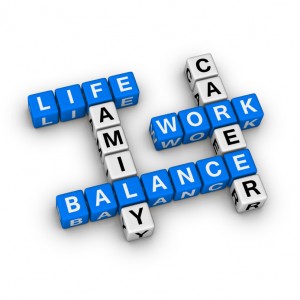 Whether you are an employer or an employee, chances are that you are aware of how important it is to maintain the right work-life balance. Taking a balanced approach to both your working and your personal life is an essential element of success, as the negative effects of an unbalanced lifestyle have been well documented. A happy and highly motivated task force results in enhanced productivity, a healthy working environment, and better interpersonal relationships both at home and at work.
Whether you are an employer or an employee, chances are that you are aware of how important it is to maintain the right work-life balance. Taking a balanced approach to both your working and your personal life is an essential element of success, as the negative effects of an unbalanced lifestyle have been well documented. A happy and highly motivated task force results in enhanced productivity, a healthy working environment, and better interpersonal relationships both at home and at work.
However, it is not always easy to apply the principles of the work-life balance concept. If you are having difficulties with this, read through this article to achieve a better understanding of the factors involved and to learn some useful tips.
Taking a closer look at the work-life balance concept
As you probably know, the work-life balance concept is a relatively recent ‘invention’. During the nineteenth century, the duration of a typical working day was well over ten hours. Soon after, trade unions and workers’ associations campaigned for the reduction of the working day to eight hours. The eight-hour working day is now seen as standard in the majority of industrialised countries, but according to statistical data, a large percentage of workers still spend more than eight hours per day at the workplace or taking care of work-related matters.
This is why the work-life balance concept came into being. The expression itself was coined in the early 1970s, as researchers found that the boundaries between the professional and the personal spheres were often blurred. Later on, studies showed that this imbalance could lead to mental and physical fatigue, poor productivity, and a range of health conditions, including a weak immune system, depression, anxiety, and cardiovascular disorders.
Nowadays, employers and employees recognise that balancing the personal and the professional is an essential element of good health and successful businesses. But how exactly can this be achieved?
Tips for finding the perfect work-life balance
One of the most important things to balance your working life is to set realistic goals and reasonable deadlines. Having a clear picture of what you want to achieve professionally can be the equivalent of having a detailed map when trying to navigate unknown terrain. Sticking to realistic goals and time frames will stop you from spending unnecessary time at work and from sacrificing your personal life.
It is important to note that being diligent and professional is different from being over-conscientious and from taking perfectionism to the extreme. Set achievable quality standards for your work and don’t bog yourself down with details that aren’t really important.
Time-management skills are essential in this respect, and they include learning to delegate tasks and asking for help when necessary. Note that taking regular breaks and engaging in physical exercise are also a way of managing your time efficiently.
Last but not least, it is important that you listen to your body and your emotions. Some co-workers might be able to pull a 45-hour working week without major consequences, but everybody has different needs. If you feel apathetic, unmotivated, or generally burned out, it is time to re-evaluate your work-life balance strategy.
What if I work from home?
The number of tele-workers and home-based freelancers has been constantly increasing over the past few years. The rising popularity of telework and telecommuting is partly a direct effect of the efforts made by companies to help their employees achieve a better work-life balance. However, this is not to say that those who work from home automatically enjoy a more balanced life. In fact, in some cases it is even more difficult to apply the principles of a balanced work-personal life approach if you work from home. How so? To start with, it might be harder to separate the personal aspects of your life from the professional ones when both take place in the same physical space. Moreover, those who work from home are likely to face more distractions than those who work from a traditional office.
So what is the key to achieving the right work-life balance if you work from home? First of all, it is crucial that you get full support from family and friends. Let them know the details of your work schedule and make sure they understand that you will not be available to respond to personal calls or e-mails during your working hours. Failing to do so can easily lead to you being flooded with requests, and dealing with them during working hours can add stress and overtime to your working day. It is also very important that you respect your own schedule. This could include turning your computer off during lunch breaks and leaving the answering machine to do its job once your working day is over.
To sum up, finding the right balance between the personal and the professional requires an ongoing effort, but the rewards are definitely worth it.
